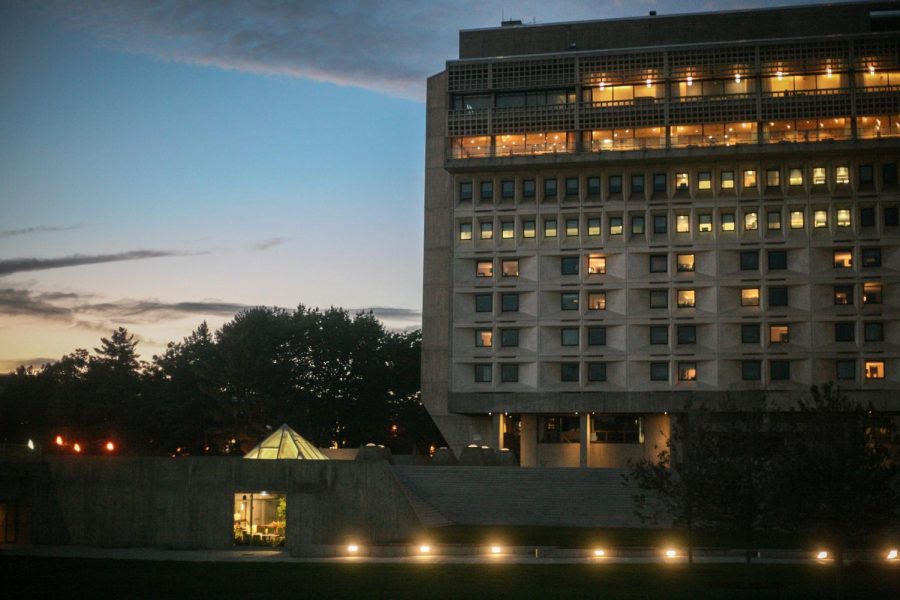Israel and Palestine have been at odds for decades. Their conflict stems from cultural, religious and historical differences, which have built up into several riots (called Intifadas) and much physical disruption has taken place between the two groups. Whether you believe that the entire area should belong to Israel, or Palestine or some combination of both, we can all agree that this conflict is far from being resolved.
After visiting Israel with UMass Hillel’s Bridging the Divide initiative, I think I have some semblance of an understanding as to why.
Nobody seems to want to talk to each other.
This conflict is so deeply rooted in identity that it is difficult for the two sides to see eye to eye. In general, Israelis believe in the necessity of a Jewish state due to the discrimination they have faced throughout history and believe that this land in particular serves as their ancestral homeland. Palestinians, on the other hand, believe they deserve the land because when the state of Israel was formed in 1948, they were systematically expelled from their homes and forced into lands designated to them by the United Nations Partition Plan. Many feel that they still deserve a right to return to their old land and homes which they were forced to abandon. As such, both groups have an ingrained dedication to the land now called Israel and have a hard time making compromises with each other.
Other countries have, admittedly, attempted to instigate peace talks. Famously, the United States hosted a summit meeting at Camp David in 2000, in which Bill Clinton attempted to bring an end to the conflict by bringing together leaders from Israel and Palestine. The summit ended without a formal agreement. Attempts by foreign governments to mediate such discussions have always ended in failure.
While in Israel, we attended various discussions with both Palestinian and Israeli speakers to hear their perspectives on the conflict. One such discussion was with a Palestinian journalist named Rami Nazzal, who was in support of peaceful discussion between the two groups, which he believes could lead to a compromise.
One thing in particular that Nazzal said stuck with me. Regardless of your political position, Donald Trump and Jared Kushner will not be the heroes that somehow solve this conflict. In fact, no one from any foreign nation will be able to fix the issues that these two groups have with one another. According to him, the only groups who can fix the issues between Israel and Palestine are Israelis and Palestinians themselves.
Nazzal isn’t alone in advocating for the importance of solutions coming from within – many of the speakers we talked to expressed a confusion surrounding the interest of outside groups. A student at Ben-Gurion University pointed out that groups like BDS (Boycott, Divestment, Sanctions) are passionate, but their passion is ineffective at best. “What will a protest in the U.S. do about problems that have nothing to do with the U.S.?” he said. To be clear, this student was not against the platform of BDS – he was skeptical of the idea that their protests could help the average Palestinian. These are people who are focused on their day-to-day lives and, as such, don’t feel the effects of what happens in the U.S.
If not foreign intervention, what is the solution for people in this region who are clearly affected by this conflict? Peace talks between Palestinian leader Mahmoud Abbas and prime minister of Israel Benjamin Netanyahu would be an effective start. While their governments are both somewhat unstable, discussion between the two groups on their own terms – not on the terms of a foreign government – would mark the start of a compromise. This is something that they desperately need.
The intervention of foreign nations, United States or otherwise, only aid in making these two groups feel more separate. How can they initiate a compromise on their own right when outside powers seem to be forcing them into one? Peace can only come when both groups are ready to compromise- not when others pressure them into it.
So, how does this conflict between two powers in the Middle East relate to our own lives? It shows us that conflict resolution, regardless of its scale, requires both parties’ willingness to communicate. The desire to make a change must come from within, not from without. Just as Israel and Palestine are the only ones who can solve their own conflict, we ourselves must be the ones to spark discussion toward resolving our personal conflicts. Peaceful discussion aimed at finding a compromise and a willingness to listen to others’ perspectives both go a long way. As Assaf Elroy, the UMass Israel Fellow, put it: “I hope that we will stop talking to one another and start talking with one another.”
Chloe Ostiguy is a Collegian Contributor and can be reached at [email protected].



















